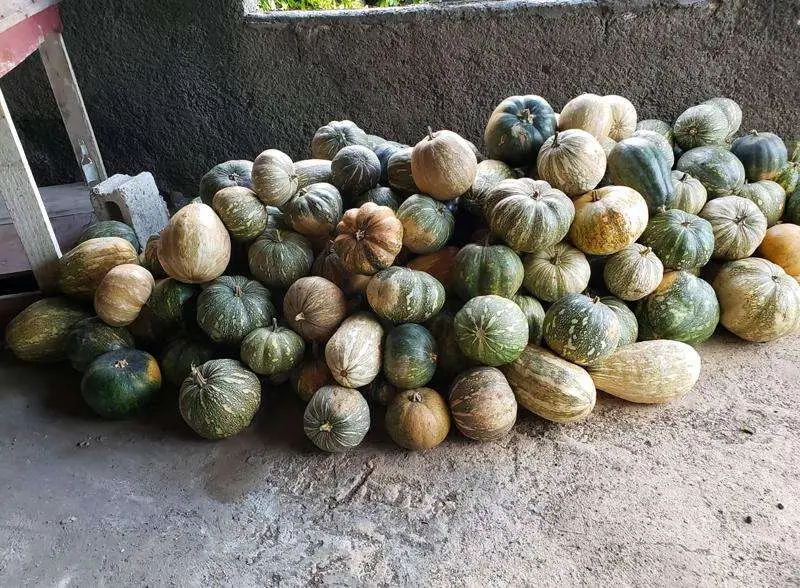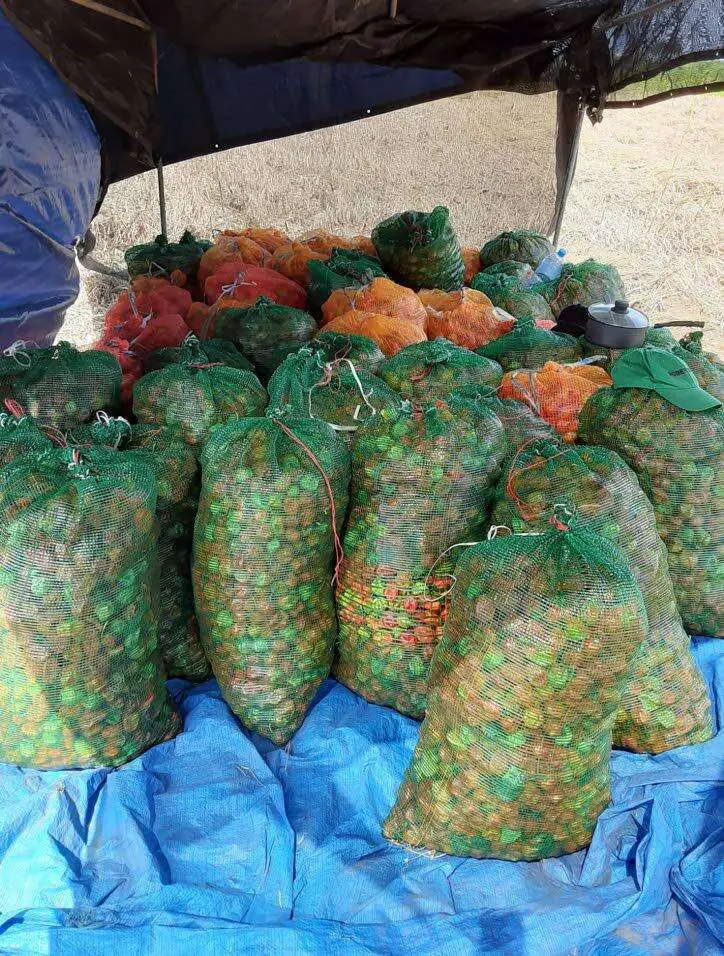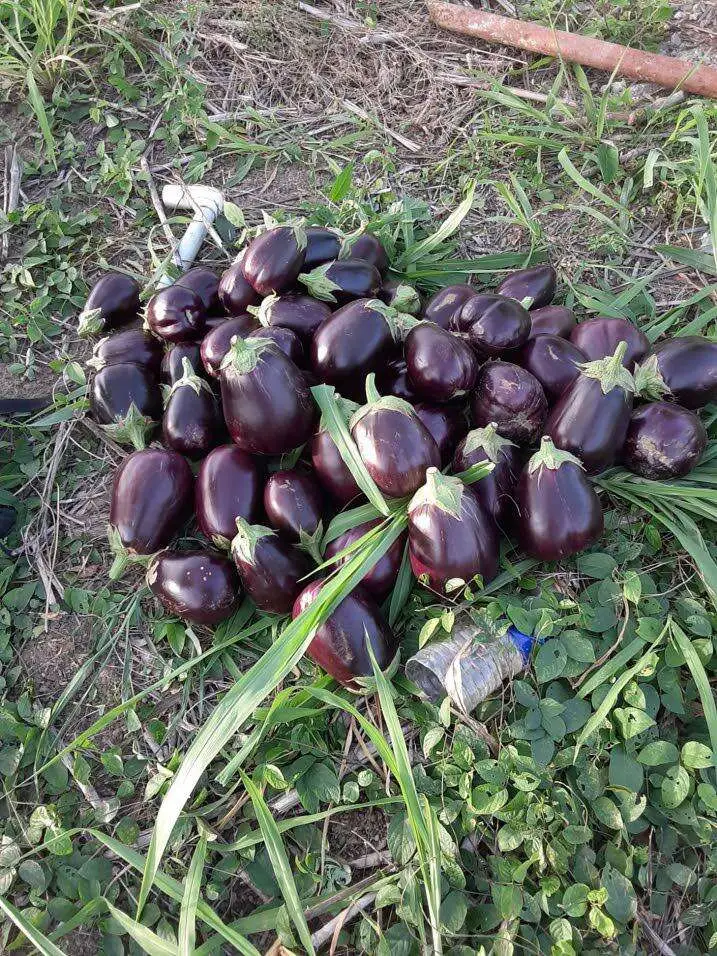
Reconstructing an economy
Nigel Leavy, president of the Plantain Gardens Farmers Co-operative (PGFC) in eastern St Thomas, says that the members are doing their part to reinvent and re-ignite economic activity in a place that many Jamaicans consider to be the “back a beyond”.
He told the Jamaica Observer, “They call St Thomas the forgotten parish. One time we depended on sugar and The Eastern Banana Company. Both are gone now. In the east we have nothing else creating employment. The task we are taking on is to see how much we can take on the task of creating it.”
“We are developing the east as a new food basket. The land is fertile. We have water. We are working with all the stakeholders and even engaging investors around setting up agro-processing. We are building from the ground up to a new level.”
Leavy’s own experience of farming and overcoming the challenges faced by the small farmer is being used to help over 100 others who have come under the wings of the PGFC.

The St Thomas native told the Business Observer that he was born into farming and remembers life on the farm from the stage of a toddler. His mother was a farmer and he assisted her even while attending school.
Leavy is today a former employee of the Eastern Banana Estate where he worked as a supervisor. He was made redundant after 2005 when a hurricane destroyed the property.
With the proceeds of his redundancy payment, he started looking for land to buy and in 2008 found five acres to lease in Springfield in Morant Bay, St Thomas. However, that venture did not last long.
The land was expensive as well, costing $2,000 per acres every month, irrespective of how the farmer fared. Leavey planted csotch bonnet pepper, pumpkin, banana and plantain but abandoned that project in 2010 when the lease was increased. He recalls, “We also began to experience a high level of praedial larceny.”
The farmer leased another five acres in Hector’s River. However, the land was close to the river and in a rainy year, the farm was flooded. After trying cucumber, pumpkin, callaloo, pak choi, this farm was abandoned.
In 2012 Leavy came under the Plantain Gardens group which was made up of farmers who leased land from the Agro-Investment Corporation (AIC), a GOvernment entity which controlled the Plantain Gardens Agropark. The farmers first tried ginger, but the effort failed. Leavy did not give up, however, and continued to farm on the property even though leases were not renewed.
Life took a turn for the better when in 2013 the farmers were given new leases and also, in time, got marketing support from the AIC. The farmer recalls, “The soil was good. We started farming the land. We started out at $2,000 per acre per year as rental. It is now $4,500 per acre per year.”
Leavy had five acres under his control then, but today is responsible for 17 acres, most of which is dedicated to growing pepper, which are purchased under contract by GraceKennedy Limited and other agro-processors. Five acres are dedicated to pumpkin and five to cassava. Other crops grown are seasonal crops such onions, plantains, and pineapple. Leavy shared, “The pepper is constant cash. It is planted for seven or nine months depending on the type and is sold every week. Pepper is ready for reaping after three and a half months.
The co-operative of farmers use their inflow of cash from pepper to cover their main costs which include $100,000 paid weekly to eight workers. Other crops are irregular sources of income and subject to gluts, because they are the cheaper crops in which many small farmers invest to get quick returns.
Leavy commented, “Coming into farming you need cash to invest. For one acre of pepper, just starting, you need $800,000 to purchase irrigation hose, more for plowing, seedlings and to pay workmen. Then you wait 3.5 months before reaping. For young entrants it is really challenging now. We started in the earlier days when things weren’t that expensive. We built up ourselves – buying more irrigation hose overtime, adding short crops, adding infrastructure. For someone coming into the business now, however, it’s challenging. If they can’t get a loan they will have to partner with someone else.”
Marketing
Leavy said that marketing remains a constant headache for farmers, primarily due to small farmers who do cash crops like pumpkin and tomatoes. “Sometimes when you finish you find out there is a glut on the market and you have to sell for less than production cost. You have to sell for a low price, or just break even
“When you have a contract you have a specific price based on the cost of production. That is viable.”
However, Coronation Market prices fluctuate. Leavy said, “The market does not care about production costs. There is no constant price. That is where the challenges come in addition to the glut.
“Before you plant you have to be trying to find out through RADA what is in demand and where.” RADA is the Rural Agricultural Development Authority – Jamaica’s agricultural extension and rural development agency.
The solution practiced by the Plantain Gardens Association (PGA) farmers is to invest in crops which present a higher barrier to entry such as pepper, cassava, onion and Irish potato which, while having higher input costs, are sold to contractors at a fixed price.
Leavy says, “Onion and Irish are expensive due to chemical fertiliser, seedlings costs and the cost of maintenance. For pepper, it’s roughly one million dollars [of input costs] for an acre. Onion requires weekly spraying, fertiliser, chemicals and labour. However, when all is said and done at the end of the day, you can make money.”
Leavy told the Business Observer that farmers today are assisted and put in a better position as “The AIC assists us in getting markets for crops. Things are a little better for us now. We can also through RADA [for support and information].”
Expanded acreage
Less than one year ago, the PGA acquired an additional 500 acres consisting of former sugar lands from the Government of Jamaica, lands which they have sub-leased to 84 farmers who mainly do plantains and other cash crops. The PGA has offered training to sub-lessees and keeps tight control, helping them in order to ensure that they will be able to pay their annual lease of $7,500 per acre.
While there are only 40 farmers on AIC lands, there are 84 on the PGA estate which was leased from the Sugar Company of Jamaica. Leavy said that on the former sugar estate, “Everyone chooses what they want to plant, but we advise and try to get the market. Plantain is one of the main crops, plus pumpkin, cassava, sweet potato, banana, callaloo, sweet pepper and Scotch bonnet pepper.
Most of those crops end up in Coronation Market in Kingston, sold to higglers. Some pumpkin is also sold to exporters. On the estate, the co-operative has 15 acres for itself. Its focus is on helping sub-lessees to sustain and grow their livelihoods.
Leavy said that on their behalf, “We are engaging with exporters and processors. Presently we have engaged with Rainforest for [the purchase of] cassava. We have exporters for pepper. There are also new food processors doing pepper and callaloo. We are trying to make the link between the farmer and the market.”
In terms of developing infrastructure, the PGA is looking to the Jamaica Social Investment Fund (JSIF) and other grant sources to put in sanitary facilities and training rooms. They are also partnering with RADA for training and some chemical companies.
A sore point Leavy said was financing for farmers. He said, “The other day Jamaica National had a programme for farmers, but generally farming is considered high risk. There is not much [financing]. I have been farming for many years and there is hardly any loan available. If there is any, they are asking for collateral.”
He explained that many of the farmers in eastern St Thomas are displaced sugar workers who have used redundancy money to start up. Some have lost these funds because, he said, “they were not fully equipped with knowledge.”
The small farmers also face flooding risk on the 500 acres when the Plantain Garden River is in spate. Other challenges are praedial larceny and the lack of tractor services.
Leavey outlined, “There are not enough tractors [only two] available and everyone usually needs them at the same time.” The former cane fields are subject to steady rainfall all year long and only two months in which there is sufficient sunshine to make plowing possible. In these two months everyone needs the tractor.
Leavey said, “In terms of buying tractors we are just putting things together. Since we got the 500 acres, we have a new structure. We just started the game for a few months and we are working hard to move it up from ground level in another year.
“We are seeing where we can head going forward. COVID came and showed us that if we can’t feed ourselves as people, it’s a problem. We are seeking to maximise the level of production.”


























